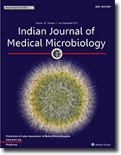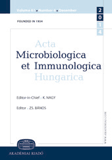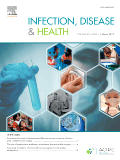
Infection Prevention in Practice
Scope & Guideline
Exploring the forefront of infection control and public health.
Introduction
Aims and Scopes
- Infection Prevention Strategies:
The journal emphasizes research on effective strategies for preventing infections in healthcare environments, including the implementation and evaluation of infection control protocols. - Antimicrobial Stewardship:
Focus on studies that assess the use of antibiotics and other antimicrobials, promoting responsible use to combat antibiotic resistance and improve patient outcomes. - Healthcare-Associated Infections (HAIs):
Research articles often address the epidemiology, prevention, and management of HAIs, providing insights into risk factors and prevention measures. - Environmental Hygiene and Surface Disinfection:
The journal includes studies on the effectiveness of cleaning and disinfection practices in healthcare settings to reduce infection risks. - Emerging Infectious Diseases:
Research on the implications of emerging pathogens, such as those observed during the COVID-19 pandemic, and their impact on infection prevention practices. - Quality Improvement Initiatives:
Emphasis on quality improvement projects aimed at enhancing infection prevention measures within healthcare facilities. - Global Health Perspectives:
The journal also covers infection prevention challenges and strategies in low-resource settings, highlighting the global nature of infection control.
Trending and Emerging
- Impact of COVID-19 on Infection Control:
A significant trend is the examination of how the COVID-19 pandemic has influenced infection prevention strategies, including the adaptation of practices and the emergence of new pathogens. - Innovative Disinfection Technologies:
Research into advanced disinfection methods, such as UV-C light and other novel agents, is increasingly prominent, reflecting the need for effective solutions against resistant organisms. - Healthcare Worker Safety:
Emerging studies focus on the safety and health of healthcare workers during infectious disease outbreaks, including the effectiveness of personal protective equipment (PPE) and compliance with safety protocols. - Antimicrobial Resistance (AMR) Research:
There is a growing emphasis on understanding AMR trends, including the epidemiology of resistant organisms and strategies for stewardship and prevention. - Integration of Technology in Infection Control:
The use of technology, such as artificial intelligence and electronic monitoring systems, is becoming a key area of research to enhance infection prevention efforts. - Patient-Centric Infection Prevention:
An emerging focus on patient engagement in infection prevention practices, including education and involvement in care processes, is gaining traction.
Declining or Waning
- Traditional Infection Control Practices:
There is a noticeable decline in research focused solely on traditional infection control practices without the integration of newer technologies or evidence-based approaches. - Single-Pathogen Studies:
Research that focuses exclusively on single pathogens has decreased, as there is a growing emphasis on multi-pathogen studies and the holistic view of infection control. - Static Compliance Studies:
Studies that merely assess compliance without actionable outcomes or interventions are becoming less common, with a shift towards research that evaluates the effectiveness of compliance on infection rates. - Non-Evidence Based Approaches:
There appears to be a waning interest in studies that do not utilize robust, evidence-based methodologies, as the field moves towards more scientifically rigorous approaches.
Similar Journals

Journal of Infection and Public Health
Empowering Knowledge for a Healthier TomorrowJournal of Infection and Public Health is a premier open-access journal published by ELSEVIER SCIENCE LONDON, dedicated to advancing knowledge in the fields of infectious diseases, public health, and environmental health. Since its inception in 2008, this esteemed journal has become a cornerstone of research dissemination, especially after transitioning to an open-access model in 2017, allowing wider accessibility to groundbreaking studies. With an impressive impact factor and ranking in the Q1 category for Infectious Diseases and Public Health as of 2023, the journal stands at the forefront of scientific inquiry, boasting a Scopus rank of #22 out of 665 in Public Health, underscoring its influence and reach in the academic community. Researchers, professionals, and students alike will find the journal's rich repository of peer-reviewed articles invaluable for ongoing education and practice in a rapidly evolving field. For contributing to the global understanding of health dynamics, Journal of Infection and Public Health is a vital resource, inviting scholars to explore, engage, and contribute to the crucial discussions shaping our world.

Infectious Diseases and Clinical Microbiology
Uniting scholars to combat infectious diseases worldwide.Infectious Diseases and Clinical Microbiology is a pivotal journal dedicated to advancing our understanding of infectious diseases through rigorous scientific research and clinical practices. Published by DOC DESIGN INFORMATICS CO LTD, this journal serves as a vital platform for researchers, healthcare professionals, and students keen on enhancing their knowledge of microbiological sciences and the clinical implications of infectious agents. With an ISSN of 2667-646X, it aims to disseminate significant findings in the field, enriching the scholarly dialogue surrounding infectious diseases. While currently operating under a traditional access model, the journal encourages global collaboration and knowledge sharing, striving to make a meaningful impact in tackling the challenges posed by infectious diseases. Its content aims to bridge the gap between laboratory research and clinical application, making it an essential resource in the contemporary landscape of global health.

Indian Journal of Medical Microbiology
Empowering Researchers Through Accessible KnowledgeIndian Journal of Medical Microbiology, published by Elsevier, is a pivotal peer-reviewed journal dedicated to the field of medical microbiology, providing a vital platform for research and scholarship since its inception in 1986. With an Open Access model established in 2001, it ensures the dissemination of scientific knowledge to a global audience, enhancing accessibility for researchers, professionals, and students alike. The journal's scope spans critical areas including immunology, infectious diseases, and microbiology, with an impressive trajectory marked by converged years of publication allowing for a comprehensive exploration of evolving scientific trends. As of 2023, the journal holds a Q3 ranking in Infectious Diseases and Microbiology (medical) and a Q4 ranking in Immunology and Microbiology categories, reflecting its significant yet growing impact in the field. Researchers seeking to contribute to or stay updated on the latest advancements in medical microbiology will find the Indian Journal of Medical Microbiology a valuable resource, as it consistently bridges the gap between emerging science and clinical application.

Revista Espanola de Quimioterapia
Advancing Clinical Insights for Tomorrow's TherapiesThe Revista Espanola de Quimioterapia, published by the SOCIEDAD ESPANOLA QUIMIOTERAPIA, is a pivotal open-access journal that has been advancing the field of clinical microbiology and pharmacology since its inception in 1989. With an E-ISSN of 1988-9518, this journal caters to a diverse audience of researchers, healthcare professionals, and students, providing them with critical insights into the latest developments in medicinal chemistry and therapeutic strategies. Located in Madrid, Spain, the journal reflects the rigorous academic standards of its associated institutions, contributing significantly to the translation of research into clinical practice. Achieving a Q3 ranking in the fields of Medicine, Microbiology, and Pharmacology in 2023 attests to its growing influence and relevance in the scientific community, making it a vital resource for those engaged in the quest for innovative solutions to pressing healthcare challenges. The journal prides itself on its commitment to maintaining an open-access model since 2018, ensuring that vital research is freely accessible to foster greater knowledge sharing and collaboration within the global scientific community.

Frontiers in Cellular and Infection Microbiology
Empowering science through open access innovation.Frontiers in Cellular and Infection Microbiology, published by FRONTIERS MEDIA SA, is a leading Open Access journal that has been at the forefront of microbiological research since 2011. Located in Switzerland, this journal aims to provide a platform for innovative and impactful studies in various domains including immunology, infectious diseases, and medical microbiology. With an impressive range of quartile rankings—Q1 in Infectious Diseases, Microbiology, and Microbiology (medical), and Q2 in Immunology—as of 2023, it positions itself as a highly reputable source in the academic community. Furthermore, its Scopus rankings highlight its significance within the respective fields, with top percentiles in key categories, making it an essential resource for researchers, professionals, and students alike. As an Open Access publication, it ensures that vital findings are accessible to a global audience, fostering collaboration and advancement in science.

GMS Hygiene and Infection Control
Transforming infection prevention strategies globally.GMS Hygiene and Infection Control is a leading open access journal dedicated to advancing knowledge and research in the fields of hygiene, infection control, and public health. Published by GERMAN MEDICAL SCIENCE-GMS, this journal has been offering unrestricted access to its rich repository of scholarly articles since 2013, making significant contributions to the global discourse on infection prevention and control strategies. With its commitment to promoting high-quality research, GMS Hygiene and Infection Control is a vital resource for researchers, healthcare professionals, and students engaged in the pursuit of best practices for improving health outcomes. The journal is built upon a foundation of rigorous peer review and aims to disseminate innovative findings that address current challenges in hygiene and infection control, thereby enhancing clinical practices and public health policies worldwide.

International Journal of Antimicrobial Agents
Transforming Knowledge into Practice for Better Patient OutcomesInternational Journal of Antimicrobial Agents, published by Elsevier, stands as a premier platform in the fields of Infectious Diseases, Microbiology, and Medical Pharmacology. With an impressive impact factor and ranked in the Q1 category across multiple medical disciplines in 2023, this journal is recognized for its contribution to advancing knowledge and understanding in the efficacy and safety of antimicrobial treatments. Its comprehensive scope from 1991 to 2024 allows for the publishing of original research, reviews, and commentary on pressing issues related to antimicrobial resistance, treatment strategies, and pharmacological innovations. With a strong emphasis on high-quality research as reflected in its Scopus rankings, the journal is an essential resource for researchers, clinicians, and students dedicated to improving patient outcomes in the face of evolving microbiological challenges. Engage with the latest findings and methodologies through this vital academic resource, available in print and online, from the heart of the Netherlands.

ACTA MICROBIOLOGICA ET IMMUNOLOGICA HUNGARICA
Advancing knowledge in microbiology and immunology.ACTA MICROBIOLOGICA ET IMMUNOLOGICA HUNGARICA is a distinguished academic journal published by AKADEMIAI KIADO ZRT, focusing on significant advancements in the fields of microbiology, immunology, and infectious diseases. Established in 1994, this journal serves as a vital platform for researchers, professionals, and students keen on exploring the complexities of microbial interactions and immune responses. With a current Impact Factor reflecting its rank within the Q3 categories for Immunology, Microbiology, and Infectious Diseases, it retains a critical position in disseminating innovative research. Although not open access, the journal provides extensive insights disseminated through various academic databases, ensuring a broad reach within the scholarly community. Its convergence over three decades indicates a robust commitment to excellence in scientific inquiry and knowledge sharing. As it moves towards the future, ACTA MICROBIOLOGICA ET IMMUNOLOGICA HUNGARICA continues to uphold its legacy of fostering collaborative research initiatives that contribute to the understanding and treatment of microbial diseases globally.

Transplant Infectious Disease
Innovating solutions for safer transplant outcomes through infectious disease research.Transplant Infectious Disease is a premier journal dedicated to advancing the understanding of infectious complications in transplant recipients, contributing significantly to the fields of Infectious Diseases and Transplantation. Published by Wiley in the United Kingdom, this journal boasts an impressive reputation within the academic community, holding a 2023 Q2 quartile ranking in both Infectious Diseases and Transplantation, as well as notable Scopus rankings that position it among the top tiers of its categories. With a convergence of scholarly articles and research findings from 1999 through 2024, Transplant Infectious Disease serves as a critical resource for researchers, professionals, and students seeking to explore the intersection of transplantation and infectious diseases. The journal encourages open dialogue and knowledge dissemination through rigorous peer-reviewed content, making it an essential platform for those aiming to address the challenges and innovations in transplant medicine.

Infection Disease & Health
Fostering Interdisciplinary Dialogue in Infectious Disease ResearchInfection Disease & Health, published by Elsevier Inc, serves as a premier interdisciplinary journal dedicated to advancing the fields of infectious diseases, public health, and nursing. With an impressive impact factor reflective of its rigorous scholarly contributions, the journal is currently indexed within the Q2 category in Infectious Diseases and Q1 in Nursing (miscellaneous) as of 2023, indicating its esteemed position in these areas. Launched in 2016, it has rapidly established itself as a valuable resource for researchers, clinicians, and students alike, emphasizing both original research and comprehensive reviews that address pressing health challenges. Authors and readers are encouraged to engage with a wealth of content that is meticulously curated to inform and inspire innovative practices within the health sector. While the journal is not an open-access platform, it offers various access options to enhance dissemination of knowledge. As the field of infectious diseases evolves, Infection Disease & Health remains at the forefront, fostering scholarly dialogue and contributing to the development of effective health strategies globally.